Publications
Articles, publications, books, tools and multimedia features from the U.S. Institute of Peace provide the latest news, analysis, research findings, practitioner guides and reports, all related to the conflict zones and issues that are at the center of the Institute’s work to prevent and reduce violent conflict.
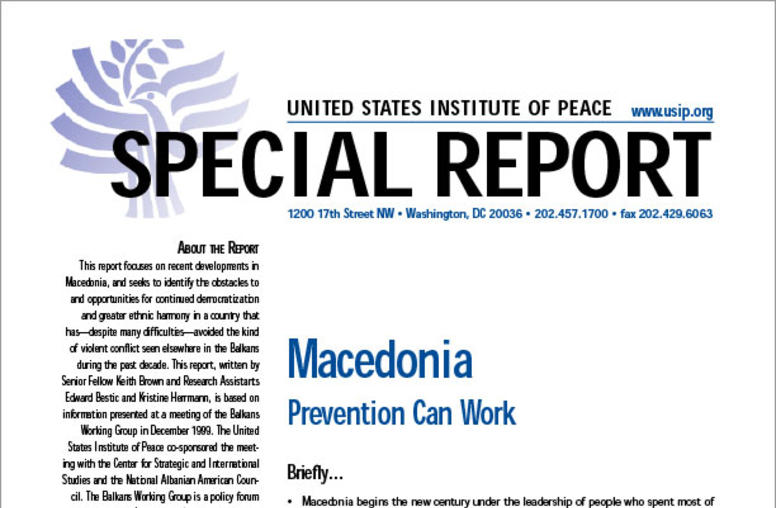
Macedonia: Prevention Can Work
This report focuses on recent developments in Macedonia, and seeks to identify the obstacles to and opportunities for continued democratization and greater ethnic harmony in a country that has--despite many difficulties--avoided the kind of violent conflict seen elsewhere in the Balkans during the past decade.
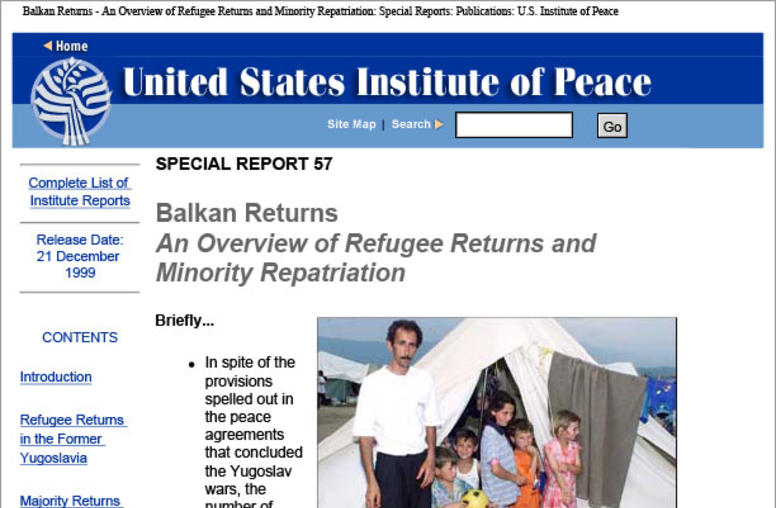
Balkan Returns: An Overview of Refugee Returns and Minority Repatriation
Summary In spite of the provisions spelled out in the peace agreements that concluded the Yugoslav wars, the number of minority returns throughout the former Yugoslavia is still low, indicating that there are considerable barriers to repatriation. The failure to draw refugees back to their towns and villages threatens the reconstruction of civic life, hinders the process of reconciliation and postpones the permanent conclusion of hostilities. The return of minorities is a regional m...
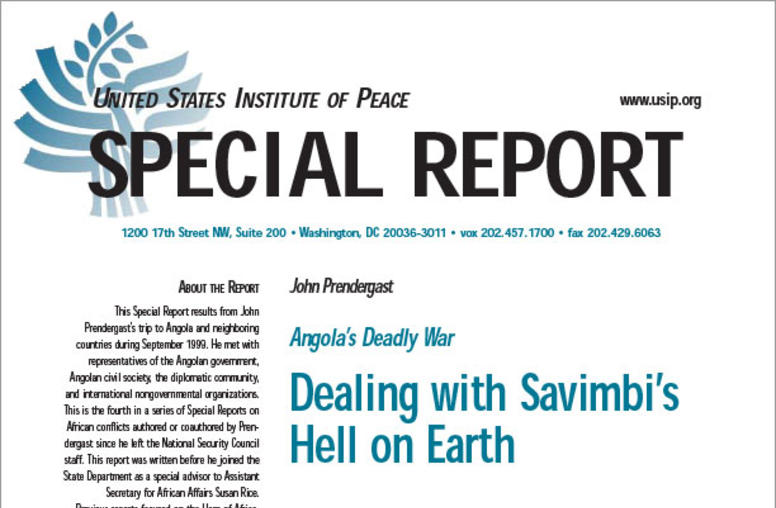
Angola's Deadly War: Dealing with Savimbi's Hell on Earth
Summary The rebel organization National Union for the Total Independence of Angola (UNITA) has plunged Angola back into a recurring nightmare of war and human rights depredations. Dissatisfied with any scenario in which he is not Angola's president, UNITA leader Jonas Savimbi has chosen war over peace, for the second time this decade.
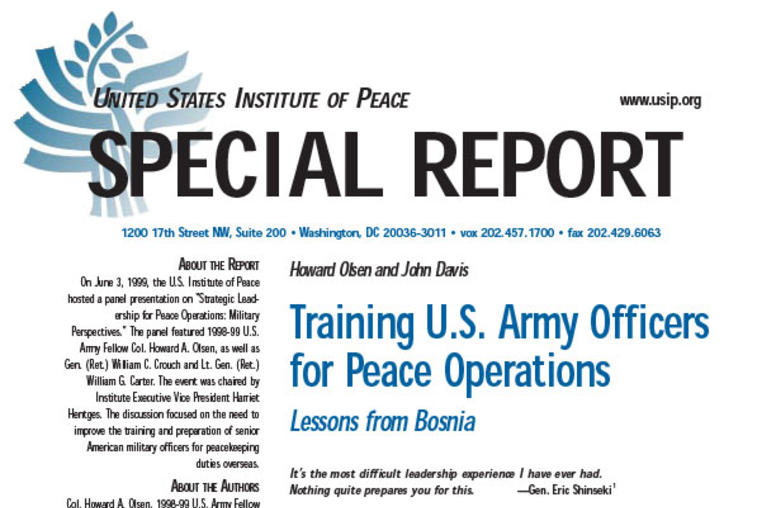
Training U.S. Army Officers for Peace Operations: Lessons from Bosnia
It's the most difficult leadership experience I have ever had. Nothing quite prepares you for this. -- Gen. Eric Shinseki1 Summary National debates fuelled by the recent U.S. military experience in Bosnia produced a series of lessons that range from force protection to civil-military implementation strategies. These lessons can and should inform U.S. military policy toward its present deployment in Kosovo. One of the most important lessons to emerge from the Bosnian experience is ...
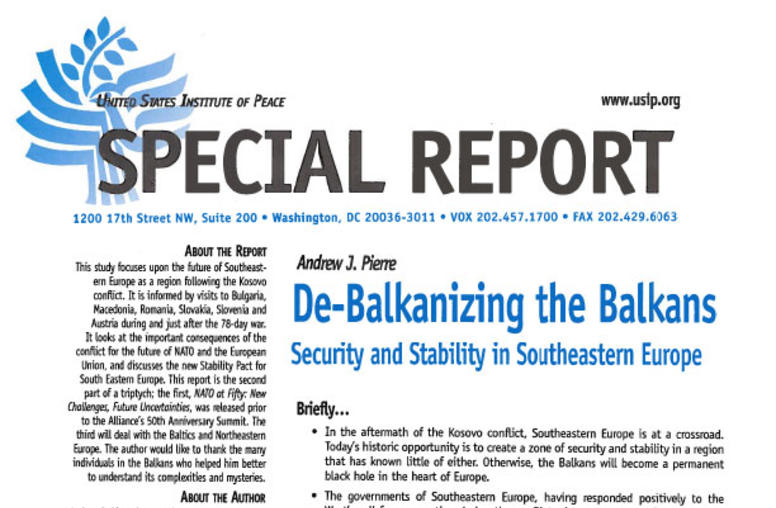
De-Balkanizing the Balkans: Security and Stability in Southeastern Europe
Summary In the aftermath of the Kosovo conflict, Southeastern Europe is at a crossroad. Today's historic opportunity is to create a zone of security and stability in a region that has known little of either. Otherwise, the Balkans will become a permanent black hole in the heart of Europe. The governments of Southeastern Europe, having responded positively to the West's call for cooperation during the conflict--in most cases against their own public opinion--and having incurred subst...
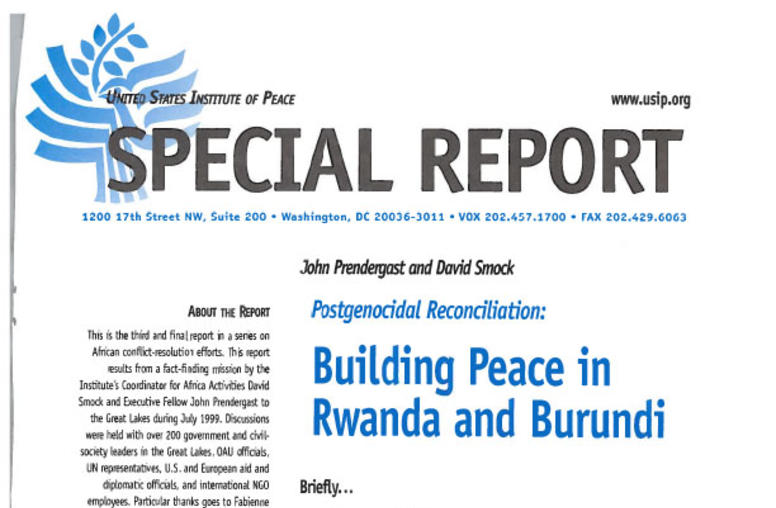
Post-Genocidal Reconciliation: Building Peace in Rwanda and Burundi
Summary Future security in both Rwanda and Burundi is closely linked to how successfully the Lusaka cease-fire agreement lays a foundation for peace in the Democratic Republic of the Congo (DRC). An effective, internationally supported disarmament and demobilization program for the Rwandan and Burundian rebel forces based in the Congo could significantly enhance security in the entire region. International support could come in part through the creation both of a Friends of Peace ...
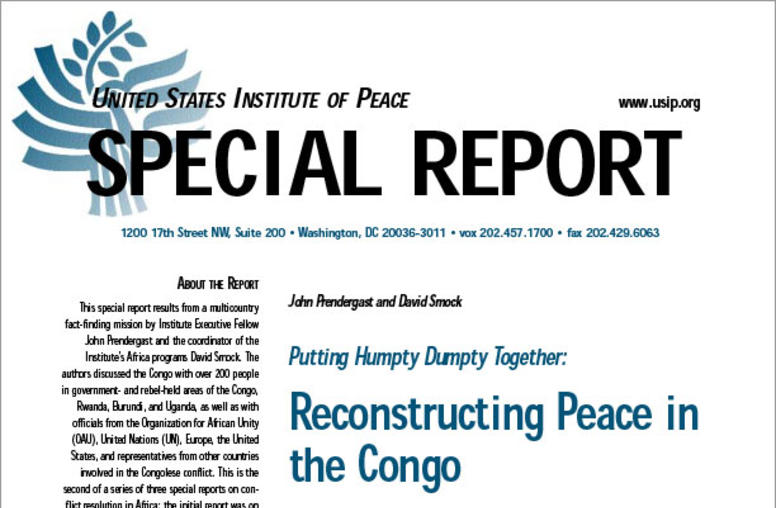
Putting Humpty Dumpty Together: Reconstructing Peace in the Congo
Summary Standing today at a crossroads between war and peace, the Congo threatens either to drag the entire Central African region into a quagmire of conflict or to provide the engine of economic reconstruction necessary for stability and democratization.
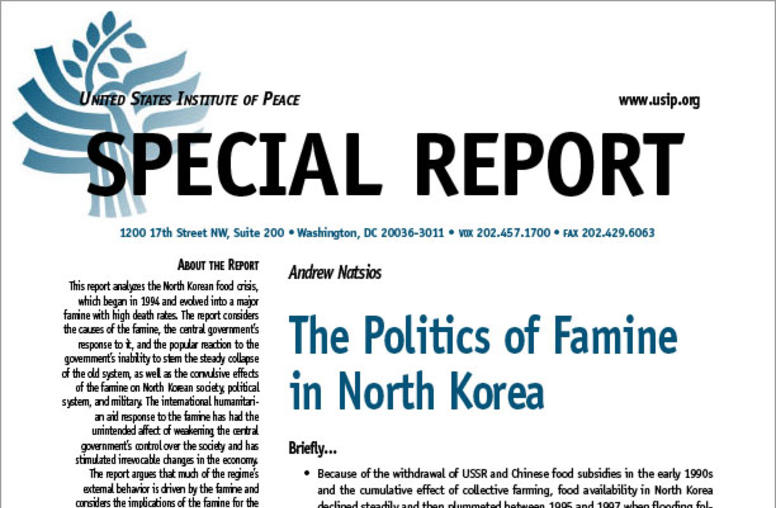
The Politics of Famine in North Korea
Summary Because of the withdrawal of USSR and Chinese food subsidies in the early 1990s and the cumulative effect of collective farming, food availability in North Korea declined steadily and then plummeted between 1995 and 1997 when flooding followed by drought struck the country. From 1994 to 1998, 2-3 million people died of starvation and hunger-related illnesses, and the famine has generated a range of social and political effects.
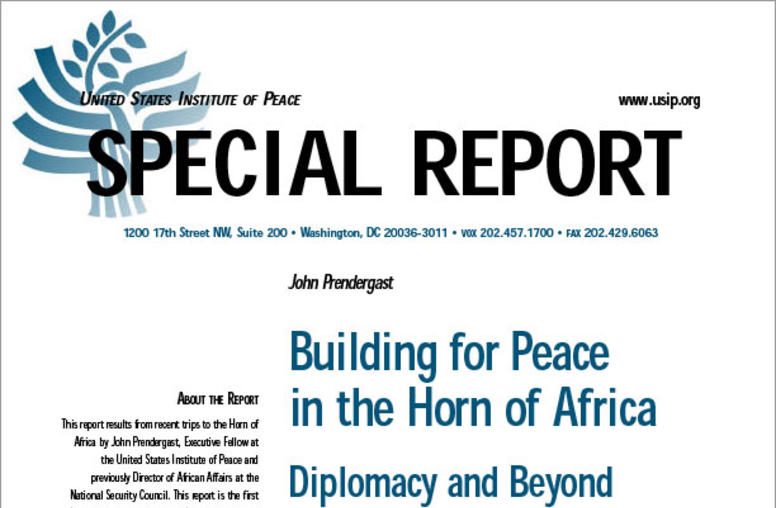
Building for Peace in the Horn of Africa: Diplomacy and Beyond
Summary Already the deadliest conflict cluster in the world, the Horn of Africa has exploded again because of the intensification of the once-improbable Ethiopia-Eritrea war. Support by Ethiopia and Eritrea for proxy militias in Somalia has reignited the Somali civil war and threatened the south with renewed famine.
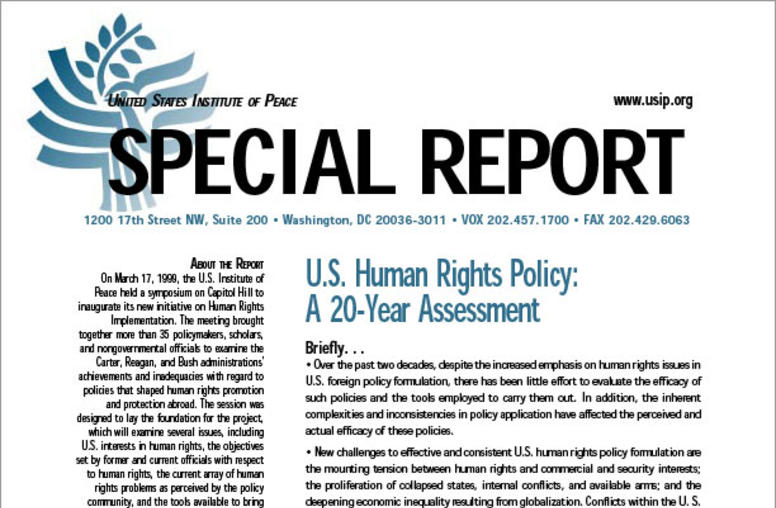
U.S. Human Rights Policy: A 20-Year Assessment
Summary Over the past two decades, despite the increased emphasis on human rights issues in U.S. foreign policy formulation, there has been little effort to evaluate the efficacy of such policies and the tools employed to carry them out. In addition, the inherent complexities and inconsistencies in policy application have affected the perceived and actual efficacy of these policies.